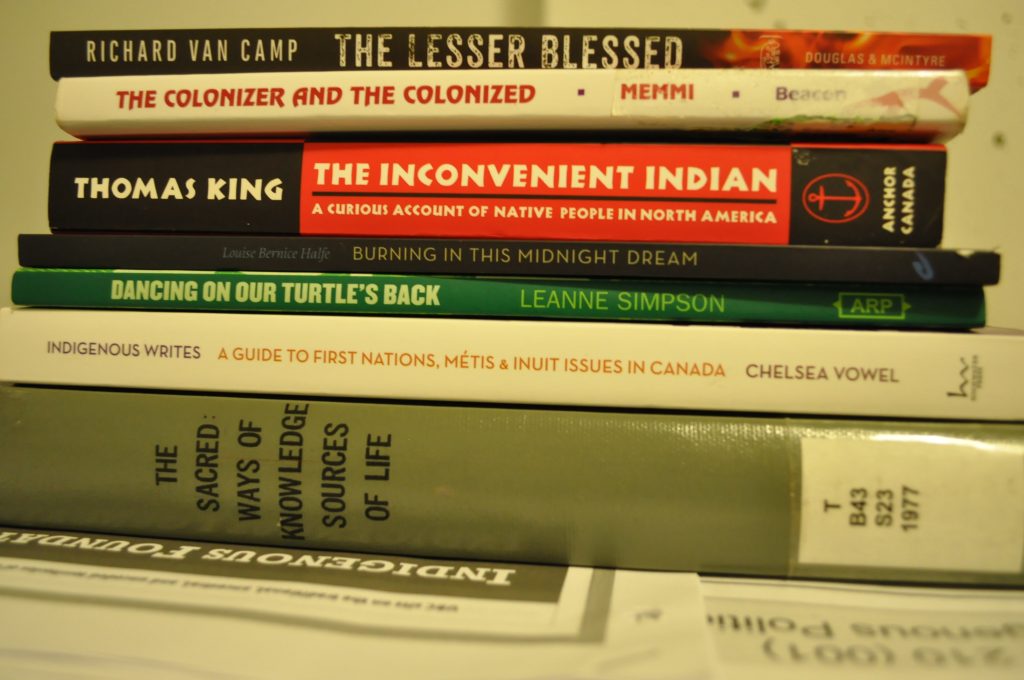Everything I learned the Winter Session 2016 has the same importance and complement each other, I think the ones I chose to talk about here are the umbrella topics, so much of details will be left out.
 This term was fundamental to understand what decolonization, reconciliation, and land really mean to most Indigenous peoples in Canada and the United States. Also, I understood how most governmental discourses, legislations and the academia adopting those three terms work interdependently to maintain the supremacy of a colonial state. And most importantly perhaps, I am aware of the genocidal side of the Indian Act which continues legislating over Indigenous peoples of Canada. This act has the power to define who is, and who is not, legally an Indian(Indigenous) and its laws are designed to extinguish Indigenous identity in a legitimate way. So I am critical now with state-defined discourses on reconciliation that seek to release the Canadian state of the illegal appropriation of Indigenous lands and a cultural genocide committed in its attempt to get rid of Indigenous peoples. Similarly, a western-defined approach to decolonization (decolonization of education, mind, sexism, feminism, etc.) serves to present oppressors and victims alike as victimized and to turn the colonizers into Indigenous. The colonial state needs to become Indigenous in order to overcome Indigenous peoples’ authentic rights to their lands.
This term was fundamental to understand what decolonization, reconciliation, and land really mean to most Indigenous peoples in Canada and the United States. Also, I understood how most governmental discourses, legislations and the academia adopting those three terms work interdependently to maintain the supremacy of a colonial state. And most importantly perhaps, I am aware of the genocidal side of the Indian Act which continues legislating over Indigenous peoples of Canada. This act has the power to define who is, and who is not, legally an Indian(Indigenous) and its laws are designed to extinguish Indigenous identity in a legitimate way. So I am critical now with state-defined discourses on reconciliation that seek to release the Canadian state of the illegal appropriation of Indigenous lands and a cultural genocide committed in its attempt to get rid of Indigenous peoples. Similarly, a western-defined approach to decolonization (decolonization of education, mind, sexism, feminism, etc.) serves to present oppressors and victims alike as victimized and to turn the colonizers into Indigenous. The colonial state needs to become Indigenous in order to overcome Indigenous peoples’ authentic rights to their lands.
The best, and perhaps the only, way for Indigenous peoples to recuperate their sovereignty is through the implementation of Indigenous justice and methods of decolonization which have to come from within their culture, away from state regulations. In this regard, I learned that their culture is not backward, all the contrary, it evolves in harmony with the flux and interaction with the land. It comes from, and is forged in, love for the land. It knows the land. In contrast, the colonial interest in Indigenous land is exploitative and destructive. Today, it makes a lot of sense to me the resistance and the movements taking place in my own country Ecuador and in Latin America in general. All of them are one big movement which I wanted to be part of, but now, thanks to this term, I want to make contributions.
 Follow
Follow